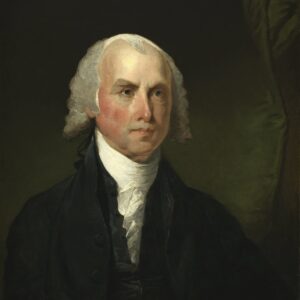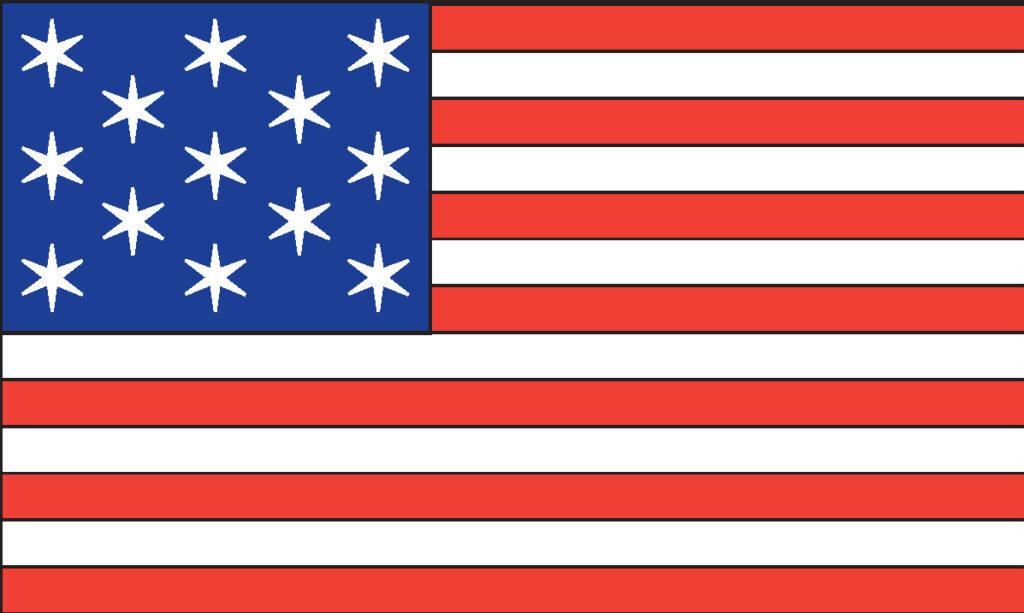James Madison, a former Delegate, from the Commonwealth of Virginia, to the Constitutional Convention, using the penname “Publius,” publishes “Federalist #46,” supporting secession and assuring that the sovereignty of the States will be maintained as long as they have solid, durable Militias. In paragraphs one and nine he writes,
The federal and State governments are in fact but different agents and trustees of the people, constituted with different powers, and designed for different purposes. The adversaries of the Constitution seem to have lost sight of the people altogether in their reasonings [sic] on this subject; and to have viewed these different establishments, not only as mutual rivals and enemies, but as uncontrolled by any common superior in their efforts to usurp the authorities of each other. These gentlemen must here be reminded of their error. They must be told that the ultimate authority:, wherever the derivative may be found, resides in the people alone, and that it will not depend merely on the comparative ambition or address of the different governments, whether either, or which of them, will be able to enlarge its sphere of jurisdiction at the expense of the other.
· · · · · · ·
Let a regular army, fully equal to the resources of the country, be formed; and let it be entirely at the devotion of the federal government; still it would not be going too far to say, that the State governments, with the people on their side, would be able to repel the danger. The highest number to which, according to the best computation, a standing army can be carried in any country, does not exceed one hundredth part of the whole number of souls; or one twenty-fifth part of the number able to bear arms. This proportion would not yield, in the United States, an army of more than twenty-five or thirty thousand men. To these would be opposed a militia amounting to near half a million of citizens with arms in their hands, officered by men chosen from among themselves, fighting for their common liberties, and united and conducted by governments possessing their affections and confidence. … Notwithstanding the military establishments in the several kingdoms of Europe, which are carried as far as the public resources will bear, the governments are afraid to trust the people with arms.
NOTES:
- Madison is saying that once a professional (standing) army becomes greater than five percent the size of the citizen volunteer Militias, liberty is imperiled.
- Although Madison uses the word “country” here, the editors believe that he meant to use the word “Union,” which is a union of sovereign States under a federal system, with a central government whose powers are strictly limited by a respected Constitution; as opposed to “nation,” in which a central government, with almost limitless power, treats its constituent states as mere enclaves, provinces, or sub-divisions of its greater self.
[added 12/7/2024]
Subsequent Events:
Authority:
Articles of Confederation, Article XIII
ccc-2point0.com/Articles-of-Confederation/#afcXIII
References:
James Ostrowski, “Was the Union Army’s Invasion of the Confederate States a Lawful Act? An Analysis of President Lincoln’s Legal Arguments Against Secession,” Secession, State and Liberty, David Gordon, ed., (New Brunswick, New Jersey and London: Transaction, 1998), 169.
Steven Yates, “When is Political Divorce Justified?,” Secession, State and Liberty, David Gordon, ed., (New Brunswick, New Jersey and London: Transaction, 1998), 55.
Federalist No 46 – The Avalon Project
avalon.law.yale.edu/18th_century/fed46.asp
Federalist No. 46 – Wikipedia
en.wikipedia.org/wiki/Federalist_No._46
Was the Union Army’s Invasion of the Confederate States a Lawful Act? by James Ostrowski
www.lewrockwell.com/ostrowski/ostrowski31.html


